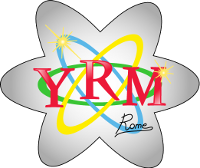Description
The start of the Large Hadron Collider in 2009 has opened a new window for high energy physics. It is expected to provide answers to some of the long-standing questions in particle physics; namely the details of the electroweak symmetry breaking mechanism in the Standard Model, and the possibility of new and exotic physics at the TeV-scale.
In this talk preliminary results of a novel model independent general search for new physics with the ATLAS detector are presented.
In contrast to specific “model-driven” searches this analysis follows an orthogonal approach. Instead of concentrating on a specific sub-model of new physics, the ATLAS data is systematically searched for deviations from the Standard Model predictions with a model-independent approach; with the only assumption that new physics will appear in high transverse momentum events.
Events containing leptons (μ, e), jets and missing transverse energy, ETmiss, are considered and subdivided into exclusive classes according to their final states. At this point a merging algorithm is employed to reduce the potentially infinite number of classes to a finite number without loosing discovery potential.
As a second step in each class a search algorithm is used to find the region in the Meff distribution showing the largest discrepancy with the MC expectations; taking into account both statistical and systematics uncertainties. The significance for such a deviation to occur is than corrected for the trial factors, both for the individual channel and for all channels combined. Preliminary results over 2.052 fb-1 of 2011 data are reported with a good overall agreement observed in most of the event classes.
Author
Simone Amoroso
(University of Freiburg)

